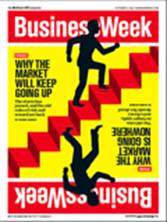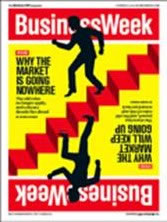In Defense of Capitalism: a True Love Story
Politics / Credit Crisis 2009 Oct 09, 2009 - 02:11 PM GMT My writing is a byproduct of my investment process, I think through writing. I don’t do movie reviews and don’t watch Michael Moore’s movies. A Denver Post reporter invited me to a private showing of Moore’s latest flick last Monday Capitalism: a Love Story, it stirred up a lot of memories and I recently finished reading Atlas Shrugged which had a great impact on me. A combination of all those things motivated me to write this.
My writing is a byproduct of my investment process, I think through writing. I don’t do movie reviews and don’t watch Michael Moore’s movies. A Denver Post reporter invited me to a private showing of Moore’s latest flick last Monday Capitalism: a Love Story, it stirred up a lot of memories and I recently finished reading Atlas Shrugged which had a great impact on me. A combination of all those things motivated me to write this.
 In the 1980s, in Soviet Russia, a few times a year, my class walked to a movie theater, where we were shown a documentary. Attendance was mandatory. The documentaries were different but the themes were the same: to the accompaniment of patriotic music, we learned about the righteousness of socialism, the greatness of Mother Russia, and the intelligence and foresight of our great leaders. To demonstrate how good we had it, we were shown images of “decaying” American capitalism. Of course, capitalism did not get the benefit of patriotic music as we were shown the poverty-stricken homeless, the KKK burning crosses and lynching blacks, and Russia-hating capitalists being poisoned by hamburgers (of course, later I learned this part about hamburgers was not a complete lie).
In the 1980s, in Soviet Russia, a few times a year, my class walked to a movie theater, where we were shown a documentary. Attendance was mandatory. The documentaries were different but the themes were the same: to the accompaniment of patriotic music, we learned about the righteousness of socialism, the greatness of Mother Russia, and the intelligence and foresight of our great leaders. To demonstrate how good we had it, we were shown images of “decaying” American capitalism. Of course, capitalism did not get the benefit of patriotic music as we were shown the poverty-stricken homeless, the KKK burning crosses and lynching blacks, and Russia-hating capitalists being poisoned by hamburgers (of course, later I learned this part about hamburgers was not a complete lie).
Past weekend Americans voluntarily spent a few million dollars to see a documentary by Michael Moore – Capitalism: the Love Story. But don’t kid yourself, this piece of work is not a documentary, it lacks objectivity and has no intention of seeking the truth, and it is anti-American and anti-capitalist propaganda. Mr. Moore is a talented propagandist; in Soviet Russia this documentary would have gotten him a medal and elevated him into a state hero.
 A successful propaganda initiative has to have three elements: (1) to influence attitudes, instead of providing information, (2) to selectively present facts (i.e., lying by omission) to achieve a certain synthesis, and (3) to get an emotional rather than a rational response.
A successful propaganda initiative has to have three elements: (1) to influence attitudes, instead of providing information, (2) to selectively present facts (i.e., lying by omission) to achieve a certain synthesis, and (3) to get an emotional rather than a rational response.
There is little information in this movie. Moore spends the bulk of the film going through our country’s trash and presenting it as the main course. For instance, a corrupt judge sentences innocent teenagers to spend months at a privately owned (i.e., for-profit, nongovernmental) youth-correction facility, while the judge is getting kickbacks from the facility owners. Moore interviews these poor teenagers, and we feel bad for them, as we should. We feel angry. Moore directs this anger towards capitalism (i.e., private enterprise): it is rotten and corrupt. Of course, the fact that corruption and bribery are the rare exception in the US, not the rule (as in Russia), is never mentioned.
Really, if you want to make a successful propaganda movie, you must evoke emotion and rightly or wrongly direct it at your subject of hate – in Moore’s case, capitalism. Moore shows families being evicted from their houses, in which some of them have lived for twenty years, and some of them have kids. Again, we feel bad for these people, we feel their pain, and we want to help. We are angry. That’s what Moore wants. But should we be angry at the bank that has given these people a loan? Or perhaps we should accept the fact that some people will make bad financial decisions, and they’ll pay a price. It is the easiest thing to blame a bank, or capitalism – they are not very popular today.
But let’s do the impossible, let’s humanize a bank. Let’s say you and I and a few friends put our life savings together and start a bank. We take deposits and make loans. Should we “forgive” a loan on a house to a person who overextended, made bad financial choices, or found himself facing hardship and unable to earn his way out of it? If we do enough of this “forgiving” we’ll go bankrupt, our kids won’t go to college, and we’ll need to ask someone else to “forgive” us for the loans on our houses, credit cards, etc. I am not even mentioning our depositors losing their money (and the FDIC – the taxpayer – bailing them out) and our employees losing their jobs.
So the heartless bank – you and I and a few friends – have to make a choice between sacrificing the well-being of our families for the sake of strangers. What would you do? See, this point is too rational and lacks the sensationalism of good propaganda; and thus Mr. Moore, who I am sure thought of it, omitted it.
Moore attacks BofA for not resorting to charity and not extending a loan to a factory in Michigan, even after BofA received TARP money. The same logic I just went through applies to the huge, unpopular BofA. Should BofA have thrown away money in a loan to the factory, knowing that the factory would not be able to repay it? Is this not what got us into the present problem in the first place?
Banks and Wall Street in general played a role in today’s crisis, but they were just one of many responsible players. Consumers in pursuit of keeping up with the Joneses overextended themselves (with the exception of cases of outright fraud, no one was forced to buy a bigger house). Rating agencies were getting paid by the customers they were rating. The Federal Reserve kept rates at very low levels for too long, politicians pressured lending at any cost, regulators were not regulating – and the list goes on. Vilifying banks as the only culprit is intellectually dishonest and a very myopic way to look at this complex problem, and Mr. Moore does just that!
Moore brought a brigade of priests to proclaim: “Capitalism is evil, immoral”; “Jesus doesn’t like the rich”; “the rich will have a hard time getting into heaven.” Two employees from a factory, talking on camera, made a really important point about capitalism. They said something along the lines of, “Maybe we should start a cooperative or something, but no, we cannot; we don’t have the money, we are not capitalists.”
Ayn Rand said it well in Atlas Shrugged: “But you say that money is made by the strong at the expense of the weak? What strength do you mean? It is not the strength of guns or muscles. Wealth is the product of man’s capacity to think. Then is money made by the man who invents a motor at the expense of those who did not invent it? Is money made by the intelligent at the expense of the fools? By the able at the expense of the incompetent? By the ambitious at the expense of the lazy?”
Moore neglects to admit that capitalism has brought people out of poverty and socialism sunk them there. He blames rising health-care costs on HMOs, though HMOs are just a pass-through vehicle between payers and service providers. He accuses capitalism as a system that “allows getting away with paying so little.”
He offers no alternative to our “broken” capitalism system other than let’s have “democracy.” This is laughable, as democracy is not a market system, it is a political system. What he wants is a command-based economy – the Soviet Russia that failed so miserably. He wants Mr. Mouch from Ayn Rand’s Atlas Shrugged, a mediocre bureaucrat who failed at everything in his life, to be put in charge of Mr. Moore’s version of a “democratic” economy (still not sure what that means). Mr. Mouch decided how much everyone produced, at what prices goods were sold, and what “fair” wages everyone got paid. In the end, despite sacrifice after sacrifice, Mr. Mouch’s economy collapses. Mr. Mouch’s visible “fair” hand fails to accomplish what the invisible “impartial” hand of the free market accomplishes so effortlessly.
Mr. Moore’s propaganda flick ends with pictures of the aftermath of hurricane Katrina. The images are powerful, full of emotion, and again in his final misdirection Moore manages to blame it on capitalism.
Vitaliy N. Katsenelson, CFA, is a portfolio manager/director of research at Investment Management Associates in Denver, Colo. He is the author of “Active Value Investing: Making Money in Range-Bound Markets” (Wiley 2007). To receive Vitaliy’s future articles my email, click here.
© 2009 Copyright Vitaliy Katsenelson - All Rights Reserved
Disclaimer: The above is a matter of opinion provided for general information purposes only and is not intended as investment advice. Information and analysis above are derived from sources and utilising methods believed to be reliable, but we cannot accept responsibility for any losses you may incur as a result of this analysis. Individuals should consult with their personal financial advisors.
© 2005-2022 http://www.MarketOracle.co.uk - The Market Oracle is a FREE Daily Financial Markets Analysis & Forecasting online publication.



